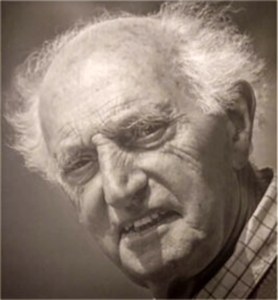WTC Fallen is the story of former students of Winchester Training College (now the University of Winchester) who made the ultimate sacrifice in the First World War. These 61 men all trained to be teachers at the college and their names are recorded, carved in oak on the college chapel memorial rail. Their life stories are here unfolded so that they may be to us more than names.
Foreword by Martial Rose (9 August 1922 – 31 January 2021) English educator and historian, College Principal 1967-84

The story that follows is of sixty[-one*] former students of the Winchester Diocesan Training College for Teachers who died in the Great War, 1914-18. All students on leaving the College were called Wintonians, and that term has been kept by former members of King Alfred’s College and alumni of the University of Winchester. It is a small group of those later Wintonians who have written this story.
From early in its history the College had been accustomed to recruit from its members a Volunteer Company that in the event of war would readily be recruited to help in the country’s need. The Principal and staff would often form part of this group. On site was an armoury and a firing-range. A little after the start of the 20th century, with threats to the nation’s peace more palpable, the College’s Volunteer Company was transformed into ‘B’ Company of the 4th Territorial Battalion of the Hampshire Regiment. When war was declared in August of 1914 and present students and former students were enlisted, each had already received a training which, in however preliminary a way, had prepared them for some of the ordeals that lay ahead.
The research team that has worked on this project is to be warmly praised for the cohesion achieved in their unravelling the family history of The Fallen, whether rural or urban, with schooling experienced in all its varieties in the progress, from pupil to pupil-teacher to training student to the fully qualified pedagogue. The road was hard; the regime demanded determination and staying power. The young men came mostly, from very large families struggling to make ends meet. Completing the Winchester teachers’ course successfully was a considerable achievement.
When war was declared and these Wintonians enlisted, some had left college a long time ago, and some joined the army immediately after their training. Many received no promotion; a few achieved officer rank. In the following account a record is given of each man’s service experience, zone of operation, and battle engagements.
A more general account is given of the battles of Ypres and the Somme, but a much fuller record is offered of the group that was sent to the war-zone in Mesopotamia. Here the campaign against the Turks was conducted under questionable leadership, with insufficient military equipment and gross lack of desperately needed, appropriate, medical supplies. The consequences were dire for the British contingent and a large force of the Indian army. The troops retreated from south of Baghdad and took up a defensive position in Kut-al-Amara, where they were besieged. Relief attempts were repeatedly beaten back. Starving and bedevilled by disease, the defending force of over 12,000 men surrendered. The photographs in this section are telling. There were many Wintonians in that forced march from Kut-al-Amara to Baghdad and beyond. From sickness, hunger, thirst and the cruelties inflicted on them by the Ottoman Turks and Arabs, many were left as they fell, to find their graves in the fly-blown sand.
Let us now praise famous men
Ecclesiasticus 44
These men were honoured in their generations,
and were a glory of their days.
There be of them that have left a name behind them, to declare their praises.
And some there be, which have no memorial;
Who are perished as though they had not been,
And are become as though they had not been born.
What follows is an account of sixty men who fought and died in the Great War. And in this study, undertaken with zest, and sharpened with scholarship, these sixty men no longer have no memorial. But are here remembered and honoured: Wintonians by Wintonians.
*on-going research discovered a sixty-first student after this foreword was written
